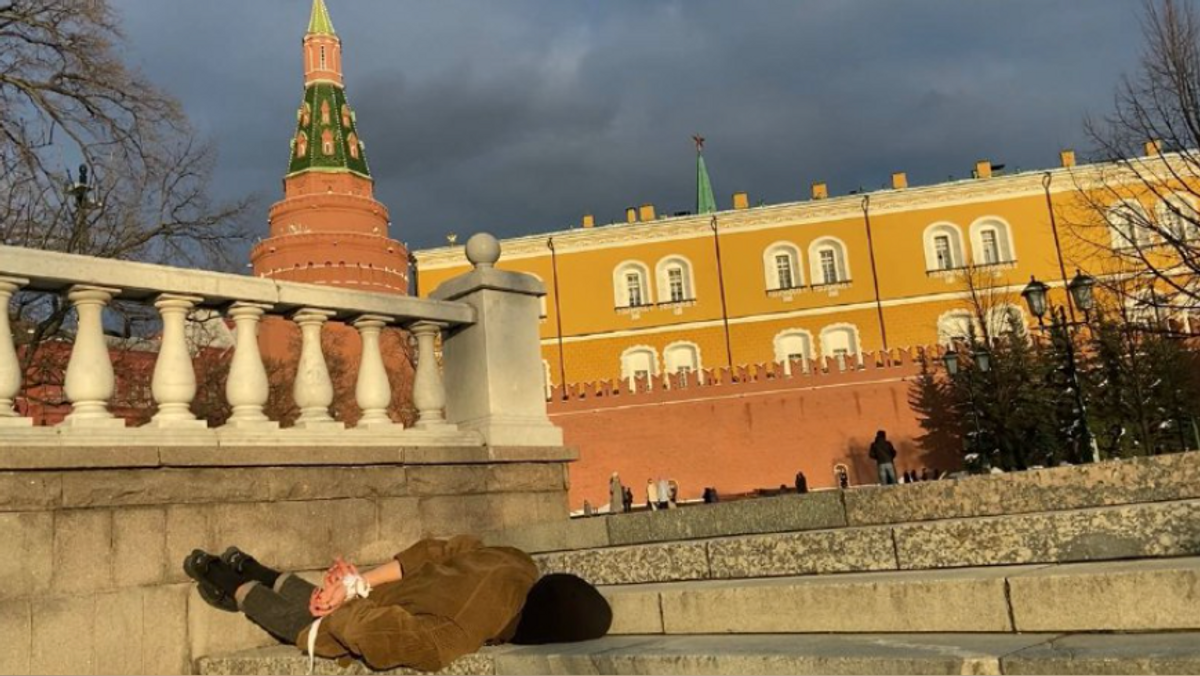An unidentified artist-activist commemorated the victims of the massacre of male residents of the town of Bucha near Kyiv by having himself photographed in front of Moscow monuments laying face down, hands tied behind his back with white cloth.
The terrifying images that emerged from Bucha over the weekend after it was freed from weeks of Russian occupation, showed many victims laying in that pose, some with gunshot wounds to the head in signs of summary execution.
The Ukrainian president Volodymyr Zelensky said more than 300 people were killed and tortured in Bucha. Speaking before the United Nations on Tuesday, he showed a graphic video of the atrocities and accused Russia of war crimes. Russian officials claim Ukraine staged the massacre and that they appeared only after Russian forces withdrew, which has been refuted by satellite footage.
The artist’s pose has become synonymous with Bucha, which is being compared with other war crimes including the 1995 massacre of Bosniak Muslim men by Bosnian Serbs in Srebrenica. He strikes it against the background of four Moscow landmarks: Aleksandrovsky Sad, a garden adjacent to the Kremlin; a bridge leading to Christ the Saviour Cathedral; and the Nikolskaya and Old Arbat pedestrian streets.
The images went viral after being distributed on Tuesday under the title Bucha-Moscow via the Telegram channel of Holod, an independent news site that evacuated its staff from Russia when a law was passed that could result in up to 15 years in prison for disseminating “fake” information about Russia’s 24 February invasion of Ukraine. Holod’s editor-in-chief fled to Georgia late last year after being labeled a “foreign agent.” The Moscow-Bucha images attracted over 226,000 views on Holod’s channel and many elsewhere as of Wednesday.
Meanwhile, on 27 March in St. Petersburg, the artist Yevgenia Isayeva wearing a white dress poured fake blood over herself and repeatedly chanted “my heart bleeds” while standing on the steps of the municipal assembly. She was taken away by police and was both fined 45,000 rubles by a court “for discrediting the actions of the armed forces” and sentenced to eight days in prison for “petty hooliganism.”


